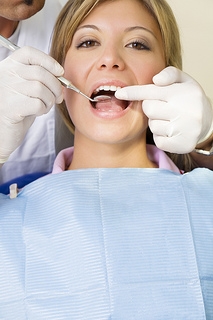Understanding Cavities
July 22nd, 2020

Getting a cavity seems like delayed punishment for eating that special dessert every weekend or for the few days you forgot to floss. When you are doing everything right with minimal exception and a cavity is diagnosed, it is discouraging. Knowing how cavities form and what causes them is valuable in knowing how to prevent them. In this blog post, Dr. Melissa Dennison Newman will help you understand cavities!
A cavity is not a one-time event. It is actually a symptom of a disease called caries. Tooth decay is a result of an active infection and condition in the mouth. There are ingredients to this infection, which include bacteria, acid, your tooth, and a food source. The main bacterial culprit is S. Mutans. Bacteria live in a housing structure called biofilm. This offers them protection, food, and an ideal replicating environment.
Biofilm can be healthy if there is a balance of good bacteria. When you have caries, the numbers of “bad” bacteria increase and produce an environment where they thrive and therefore cause tooth decay. A main indicator of this is a pH measurement of your saliva.
Several factors can influence the biofilm pH. Foods and beverages all have different pH levels. The lower the number, the higher the acidity. Since acid promotes tooth decay, a beverage like soda will promote a cavity. Water, being neutral, is a good choice to promote healthy oral pH. Healthy eating can still cause cavities. Here is an example of a highly acidic, yet traditionally healthy meal:
Toast with store-bought strawberry jam, and a cup of cottage cheese topped with fresh cranberries.
Instead, here is a better choice, which involves mixing acidic healthy foods with alkaline (non-acidic) foods to reduce the overall pH:
Toast with almond butter, and Greek yogurt topped with fresh blueberries.
The first example will result in a very low pH in the mouth and even in the rest of the body. The second meal mixes highly acidic blueberries with an alkaline Greek yogurt. Dairy products from cows are highly acidic. Toast is acidic because of the yeast and almonds are alkaline.
A natural buffer is saliva. Whenever mouth breathing or medications compromise the saliva flow, the pH is going to drop and caries can go rampant. Getting a cavity is not just about the sweets or forgotten flossing sessions. It is about the pH levels and bacterial management.
For more helpful tips about how to avoid cavities, contact our Plaistow, New Hampshire office.




